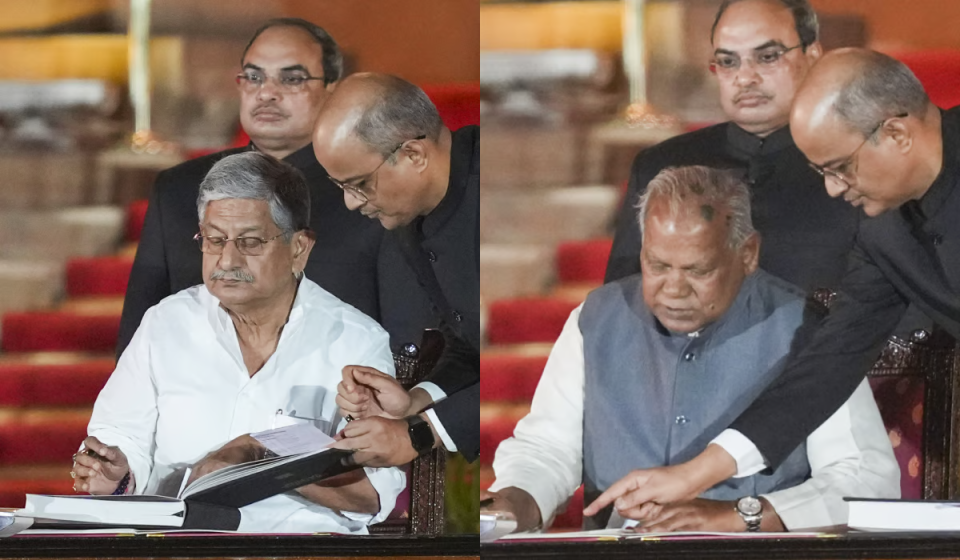Eight leaders from Bihar were sworn in as ministers in Prime Minister Narendra Modi’s Cabinet 3.0 on Sunday, emphasizing a balance of caste representation. The oath-taking ceremony, administered by President Droupadi Murmu, took place at Rashtrapati Bhavan in New Delhi.
Among the newly appointed cabinet ministers is Jitan Ram Manjhi, former Chief Minister of Bihar and patron of Hindustani Awam Morcha. Manjhi, representing the Musahar community, a significant Mahadalit group in Bihar, won the Lok Sabha seat from Gaya (SC). His inclusion aims to solidify support from the Mahadalit community, crucial for the NDA coalition in Bihar.
Chirag Paswan, the leader of Lok Janshakti Party (Ram Vilas), was also sworn in as a cabinet minister. Paswan, a prominent Dalit leader, particularly among the Paswan community, has emerged as a significant political figure following his father Ram Vilas Paswan’s death. He won from Hajipur (SC) and is expected to strengthen Dalit support for the government.
Raj Bhushan Prasad Choudhary Nishad, a doctor-turned-politician from the Mallah (fishermen) community, was appointed as a union minister of state. His inclusion is seen as a strategic move to attract the fishermen community ahead of the 2025 assembly elections. Nishad’s victory in Muzaffarpur came after joining BJP from Vikassheel Insaan Party.
Satish Chandra Dubey, a Rajya Sabha member and a key Brahmin leader in the Champaran region, was appointed as a union minister of state. Dubey’s inclusion aims to attract Brahmin voters in Bihar and neighboring Uttar Pradesh. Previously an MP from Valmikinagar, Dubey has served as an MLA from Chanpatia and Narkatiaganj.
Rajiv Ranjan Singh, also known as Lalan Singh, a former JD(U) president and a prominent Bhumihar leader, joined the cabinet as a minister. Singh, a close ally of Bihar Chief Minister Nitish Kumar, won the Lok Sabha seat from Munger. His appointment aims to maintain stability within JD(U) and strengthen the party’s influence.
Ram Nath Thakur, a Rajya Sabha member and son of former Bihar Chief Minister Karpoori Thakur, was inducted as a union minister of state. Thakur, representing the EBC category, aims to attract EBC voters, a significant demographic in Bihar. Thakur has a long history of political service, including ministerial roles under Lalu Prasad and Nitish Kumar.
Giriraj Singh, a BJP leader and Union Minister, retained his position after winning the Begusarai seat for the second term. A notable Hindutva face of the BJP in Bihar, Singh’s inclusion reinforces the party’s commitment to its core ideological base.
Nityanand Rai, a prominent Yadav leader from the BJP, also retained his ministerial position. Rai’s appointment aims to counterbalance the influence of RJD chief Lalu Prasad by projecting a Yadav leader within the BJP in Bihar. Rai’s victory from Ujiarpur highlights his significant political standing within the state.

